My Boy Died On His First Birthday, The Four Words That Could Have Saved Him
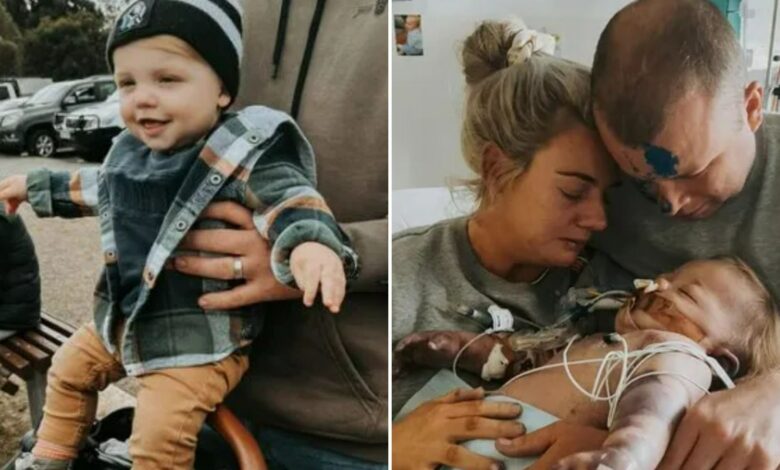
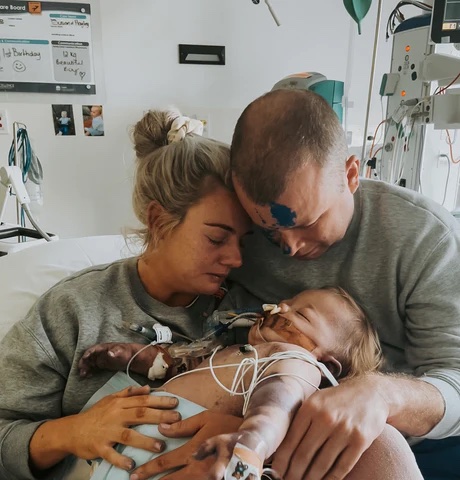
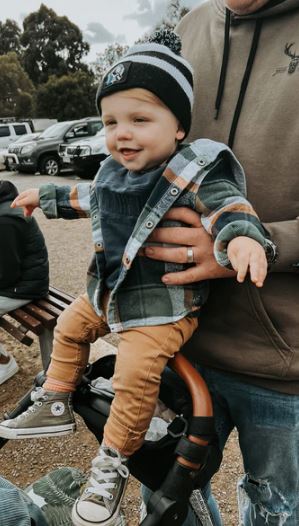
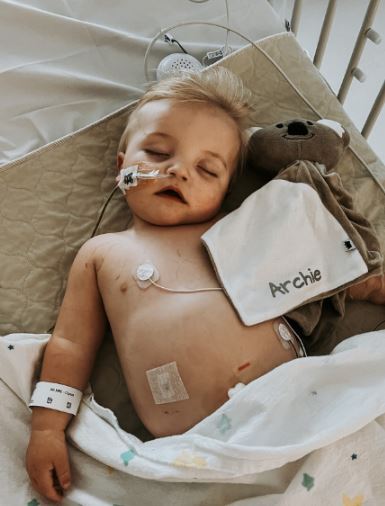
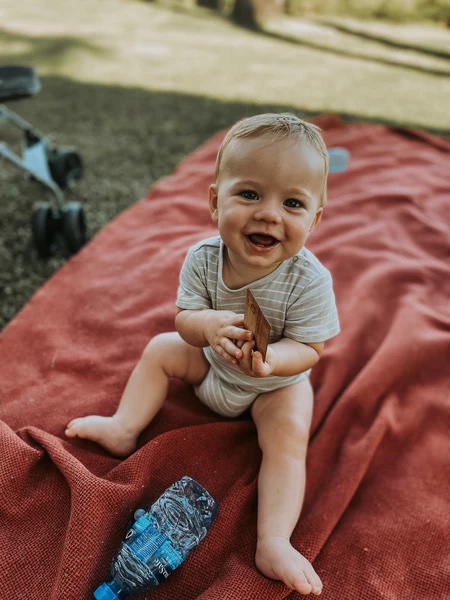
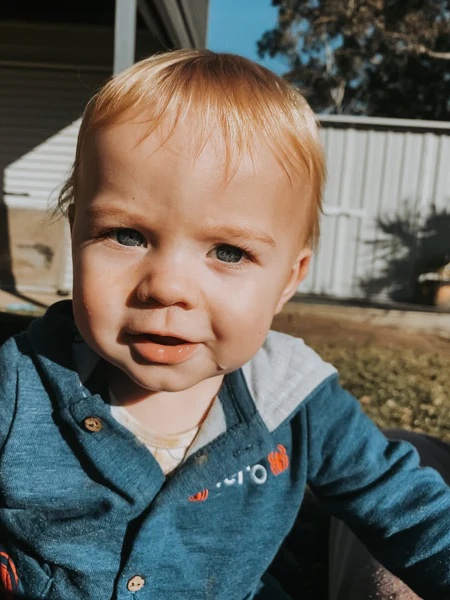
A mother who lost her son to sepsis on his first birthday has called on parents with sick children to consider a four-word question.
This life-threatening condition is often caused by respiratory, abdominal, or urinary tract infections.
In Archie Read’s case, it was a group A streptococcal infection that turned septic and ultimately took his life in 2022.
His mother Kylie Read admits that ‘no alarm bells went off’ at first, assuming her son had a common infection, which he had probably picked up at daycare.
When Archie hadn’t been to the toilet for a while, she knew something was wrong and took him to the hospital.
What followed was an hours-long wait in the emergency department, where staff were only concerned with getting Archie to pee, Kylie said. news.com.au.
It wasn’t until a nurse commented on Archie’s behavior during the cannula insertion — and Kylie told her it wasn’t because her son was quiet, but because he was so lethargic “he couldn’t move” — that she felt her concerns were finally being taken seriously.
“They ended up putting a catheter in and he had tubes coming out everywhere, but he still couldn’t pee,” Kylie said.
“And that was because all his organs were failing because he had become septic – but no one knew that at the time.”
No closer to an answer, the Reads went to sleep in a nearby hospital room – only to be awakened half an hour later by “banging on the door.”
“It was the nurse who came and said — I don’t even remember what she said, but she sat us down and she said all these words, and I just said to her, ‘Is he alive? What’s happening? Get to the point,'” Kylie said.
“And she still didn’t answer, so I went to his room, and there we saw all the doctors around him.
“He had a cardiac arrest and they tried to bring him back.”
Archie suffered two more cardiac arrests, was put on dialysis and had his stomach cut open “to try and drain fluid because he was so swollen”.
At that moment – after seeing her son go through so much – “I didn’t even feel like I was in my own body.”
“We were just in shock. Nothing was right,” Kylie said.
“He had just been a little grizzly the day before.
“But if someone had told me that within 24 hours I would see blood dripping from his eyes and that he would be unrecognizable, I would never have believed it.”
Although he did not suffer another cardiac arrest – a source of “little comfort” – Archie’s body had been put through all it could take.
“The doctors were 99.9 percent sure he was brain dead,” Kylie recalls.
“And because he had become septic, the blood had stopped pumping to all the non-vital parts of his body. His hands were blue, his feet were blue, his head was turning blue too.
“So they said, ‘There’s a chance that all of that will have to be amputated, and that’s even if his organs come back. Even if his organs start to turn around and improve, he’s going to be brain dead and those limbs are going to have to be amputated.’
“But it didn’t work out that way. His organs didn’t start to improve. His blood pressure was so low that blood wasn’t being pumped to the important parts anymore.”
With the inevitable looming, his parents begged doctors “to just take him until midnight,” gathered their family, “put some balloons in the room and we sang Happy Birthday” as soon as the calendar turned to August 23.
At 9 a.m. on his first birthday – nearly 48 hours exactly after the Reads first set foot in the hospital – Archie was dead.
“(The doctors) got him prepped, put him in my arms and turned off the machines,” Kylie said.
“And basically everything stopped (in his body) right away.”
Five months after Archie’s death, his parents were presented with a report detailing the findings of an independent investigation into the hospital’s handling of his case.
Kylie said it’s still difficult for the family to process what came out of this.
“We have received documents from parties who have investigated (Archie’s death) stating that if the hospital had followed their protocol and they had noted all the cases where he was classified as critically ill, he would still be alive,” Kylie said.
The possibility that Archie had sepsis was raised when the Reads first presented to the emergency department, but “the treatment pathway was not activated and they did not investigate anything further.”
What are the symptoms of sepsis?
SEPSIS is a life-threatening response to infection. It occurs when your immune system overreacts and damages your body’s tissues and organs.
Symptoms of sepsis in adults include:
- Acting confused, speaking unclearly or not feeling like doing anything
- Blue, gray, pale, or blotchy skin, lips, or tongue – on brown or black skin this may be easier to see on the palms of the hands or soles of the feet
- A rash that doesn’t go away when you roll a glass over it, similar to meningitis
- Difficulty breathing, shortness of breath or very rapid breathing
Symptoms in a child include:
- Blue, gray, pale, or blotchy skin, lips, or tongue – on brown or black skin this may be easier to see on the palms of the hands or soles of the feet
- A rash that doesn’t go away when you roll a glass over it, similar to meningitis
- Difficulty breathing (you may hear grunting sounds or their stomach sucking under their rib cage), shortness of breath, or very rapid breathing
- A weak, high-pitched cry that does not sound like their normal cry
- Not responding as they normally do, or not interested in food or normal activities
- Feeling sleepier than usual or having trouble waking up
They may not have all of these symptoms.
If you think you or someone else has symptoms of sepsis, call 911 or go to the emergency room.
Source: NHS
“By the time they realized it was sepsis, it was too late,” Kylie said.
“They put that document in front of me and said, ‘He should still be alive.’
“It was the eight missed chances that did him in.”
In memory of their son, the Read family organised Walk for Archie, an annual event held each September in Lake Macquarie that raises money for Sepsis Australia and raises awareness of the condition.
“I honestly had never heard of sepsis (before Archie died). I had no idea what it was – and most of my family and friends didn’t either,” Kylie said.
“That’s why we started this walk, purely to create awareness about sepsis.
“And the amount of people who now know about it, just because of Archie, is incredible. I’ve already heard about the lives that his story has saved, because people were asking, ‘Could it be sepsis?'”
It’s a four-word question that, Kylie says, could ultimately save your child’s life.
“If you’re in the hospital or at the doctor’s office, just ask the question,” she said.
“It may not be sepsis, but we just want to get that one word in the back of people’s minds.
“There was never a doubt about it when we were there. My husband and I know now that if we had said those words, right at the beginning, and the hospital had done something about it, Archie would still be here today.”
You can donate to Sepsis Australia, here.
This story was originally published on News.com.au and is republished here with permission.









